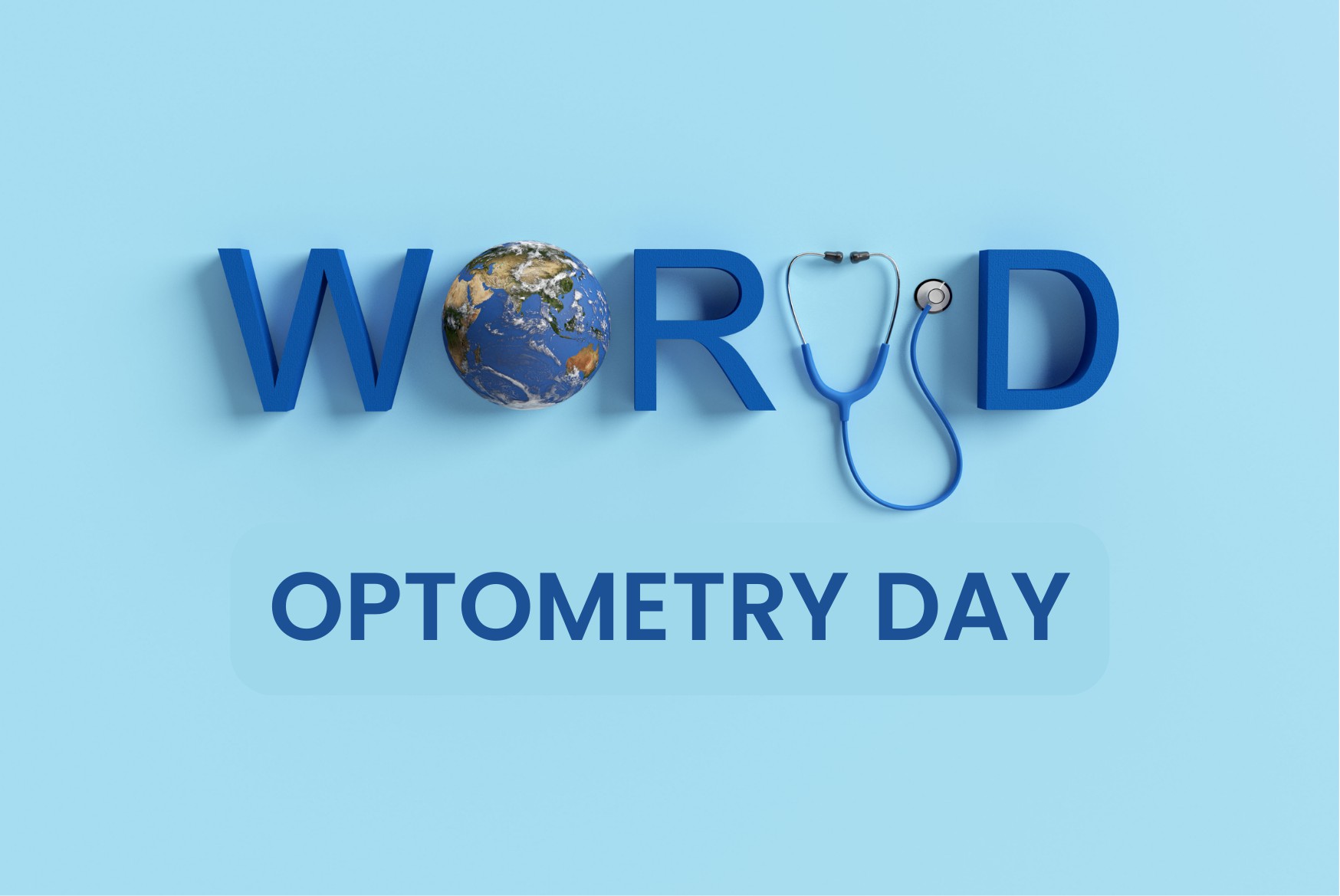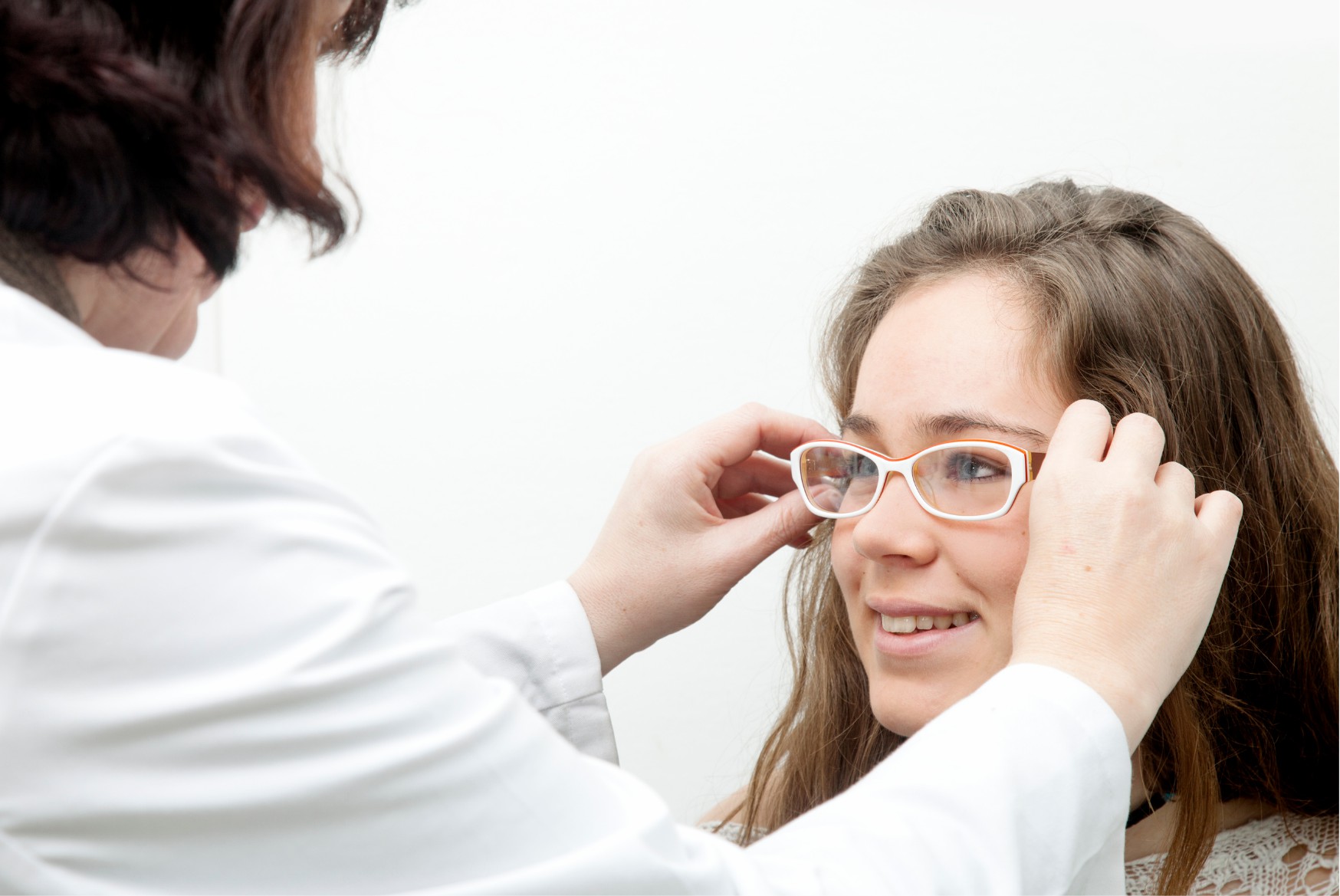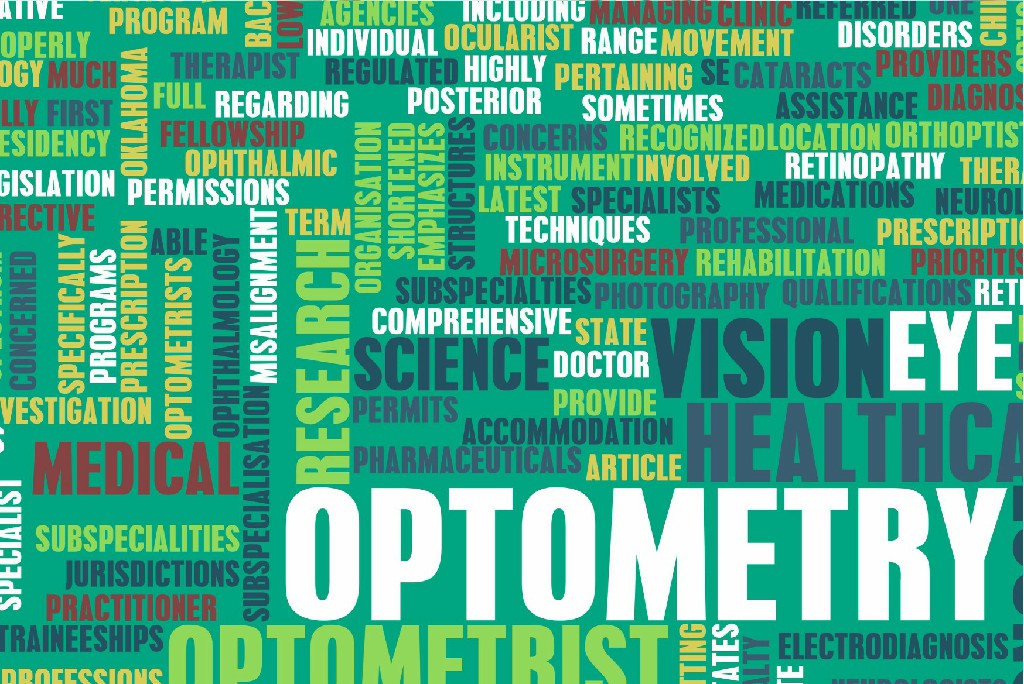What do you usually do when feeling uncomfortable in the eyes? Will you close your eyes briefly to rest them, or use the eye drops yourself? A suggestion often ignored is to make an appointment with your optometrist. On March 23rd, as in the World Optometry Day, we attempt to raise awareness of the optometry and vision care, and also remind people to attach importance to optometry. This article explains how optometry works, what optometrists do, the importance of optometry, and how to care for your vision, in order to help you learn more about optometry.

What is Optometry?
Optometry is a branch of healthcare that deals with the diagnosis and treatment of vision problems, as well as the prescription of eyeglasses or contact lenses. Optometrists are primary eye care providers, meaning they are often the first healthcare professionals that patients see when they have vision-related issues. Optometrists have extensive training in vision science and are equipped to diagnose and manage various eye conditions.
Optometry involves a series of eyesight tests designed to assess the eyes’ health and quality of vision. The optometrist will use various tools and techniques to evaluate your eyes during an optometry appointment. These may include:
- Visual acuity eyesight test to measure how well you see at multiple distances
- A refraction test to determine your eyeglass prescription
- A slit lamp examination to examine the structures of the eye
- A tonometry test to measure the pressure within the eye
 Except for optometrists, you might also hear of similar titles: ophthalmologists and opticians. While optometrists, ophthalmologists, and opticians all deal with eye care, they each have different roles and levels of training. Optometrists are primary eye care providers who can diagnose and treat various eye conditions. At the same time, ophthalmologists are medical doctors who specialize in eye care and can perform surgeries. Opticians, on the other hand, are trained to fit and dispense eyeglasses and contact lenses but cannot diagnose or treat eye conditions.
Except for optometrists, you might also hear of similar titles: ophthalmologists and opticians. While optometrists, ophthalmologists, and opticians all deal with eye care, they each have different roles and levels of training. Optometrists are primary eye care providers who can diagnose and treat various eye conditions. At the same time, ophthalmologists are medical doctors who specialize in eye care and can perform surgeries. Opticians, on the other hand, are trained to fit and dispense eyeglasses and contact lenses but cannot diagnose or treat eye conditions.
What Kind of Issues Will be Found by Optometry?
Optometrists can diagnose and manage many vision problems, including nearsightedness, farsightedness, astigmatism, and presbyopia. They can also detect eye conditions such as glaucoma, cataracts, macular degeneration, and diabetic retinopathy. Additionally, optometrists can prescribe eyeglasses or contact lenses to correct vision problems, also providing pre-and post-operative care for patients who have had eye surgery.
World Optometry Day: March 23rd
World Optometry Day is organized on March 23rd every year to raise awareness about the importance of regular eye care and recognize the contributions of optometrists worldwide. This day is an opportunity to educate the public about optometrists’ role in promoting good eye health and preventing vision loss. You can take an essential step towards maintaining good vision and overall eye health by scheduling an appointment with your optometrist on World Optometry Day.

Why is Optometry Important?
Optometry is a field of healthcare that is important for various reasons. Here are some of the critical reasons why optometry is so essential:
- Prevalence of Vision Problems: The World Health Organization (WHO) estimates that 2.2 billion people in the world are blind or have some other form of vision impairment. Of them, a billion have vision problems that could have been prevented or are still unresolved. Myopia (nearsightedness), hyperopia (farsightedness), astigmatism, presbyopia (age-related farsightedness), and color blindness are the most prevalent vision issues.
- Eye Discomfort can Lead to Vision Loss: Some common eye conditions, such as glaucoma, macular degeneration, and diabetic retinopathy, can lead to permanent vision loss if left untreated. Additionally, eye discomfort and irritation, such as that caused by dry eye syndrome or blepharitis, can indicate underlying eye diseases that require treatment to prevent more severe vision problems.
- Prevention of Severe Eye Issues: Regular visits to an optometrist can help prevent serious eye issues by detecting and managing vision problems early on. Optometrists can also monitor the progression of eye conditions and recommend appropriate treatments to prevent further damage or vision loss.
- Improved Quality of Life: Good vision is essential for daily reading, driving, and working activities. Optometry can help improve the quality of life for people with vision problems by correcting their vision and addressing any underlying eye conditions that may be causing eye discomfort or irritation.
- Early Detection of Systemic Diseases: Many people don’t realize that optometrists can detect signs of certain systemic diseases, such as diabetes and hypertension, during an eye exam. This is because changes in the blood vessels in the eye can indicate problems in other body parts. Early detection of these diseases can lead to earlier treatment and better outcomes.

Optometry is essential because by providing regular eye exams, optometrists can detect early signs of eye issues and provide timely treatment to prevent them from progressing. Furthermore, optometry also can help us improve the overall quality of life. Good vision is crucial for everyday activities like driving, reading, and socializing, and well-timed optometry ensures the healthy vision of all the people. In a word, regular optometry is beneficial to individuals in a general way and appointments with optometrists are always recommendable.
Care for Your Vision
Regular optometry is necessary to avoid or prevent severe eye issues. The American Optometric Association (AOA) recommends that individuals have a comprehensive eye exam every two years or more frequently if they have specific risk factors for eye disease. During an eye exam, an optometrist will check for various eye conditions, including nearsightedness, farsightedness, astigmatism, and presbyopia. They may also check for eye diseases like glaucoma, cataracts, and macular degeneration.
Caring for your vision is essential to maintaining good eye health and preventing severe eye problems. Here are some measures you can take to protect your vision:
- Regular Optometry: It is recommended that individuals have a comprehensive eye exam on a regular basis or more frequently if they are at high risk, such as a family history of eye disease, high blood pressure, or diabetes. Regular optometry visits can help detect and treat vision problems early on before they become more serious.
- Eye Protection: Wear protective eyewear, such as safety glasses or goggles, when participating in activities that could harm your eyes, such as playing sports, doing home repairs or yard work, or working with chemicals or machinery.
- Healthy Habits: Maintain a healthy lifestyle by eating a balanced diet of fruits and vegetables, exercising regularly, and not smoking. These habits can help reduce the risk of specific eye problems such as age-related macular degeneration and cataracts.
- Rest Your Eyes: Take breaks from activities that require intense focus or staring at a screen for long periods, such as reading or using a computer. Look away from the screen every 20 minutes and focus on a distant object to reduce eye strain.
- Care for Changes in Vision: If you notice changes in your vision, such as blurred vision, double vision, floaters, or flashes of light, make an appointment with your optometrist immediately. Early detection and treatment of these symptoms can help prevent more severe vision problems.
- Care for the Vision of Your Loved Ones: Encourage your loved ones to care for their vision by reminding them to have regular optometry visits, wear protective eyewear, and maintain a healthy lifestyle.
On World Optometry Day, we can spread awareness about the importance of regular optometry visits and encourage people to care for their vision. We also call on those interested in the eye health sector to consider joining this vital field to help improve individuals’ and communities’ vision and eye health worldwide. Working together can promote good eye health and prevent severe vision problems and give awareness of vision care.

In conclusion, good vision is essential for a healthy and productive life, and optometry is crucial in achieving and maintaining good eye health. Optometrists are trained professionals who use their knowledge, skills, and technology to identify and manage various eye conditions, including refractive errors, vision loss, and eye diseases. Regular eye exams are vital for detecting and treating eye problems before they become severe and irreversible. On World Optometry Day, we appreciate the work of optometrists worldwide and recognize the importance of vision care for everyone. Protecting your vision is not just about you; it is also about caring for your loved ones’ vision and ensuring they have the best possible quality of life. By taking simple measures to care for our eyes and promoting awareness of vision care, we can all contribute to creating a brighter and clearer world.
References:
https://global.essilor.com/uk/blog/your-life-and-eyes/world-optometry-day
https://worldcouncilofoptometry.info/wp-content/uploads/2020/09/WhyOptometry.pdf
https://my.clevelandclinic.org/health/articles/24219-optometrist




